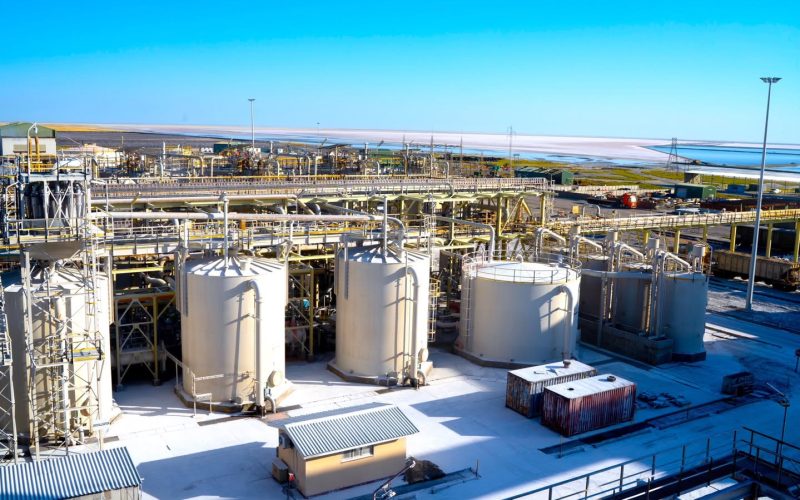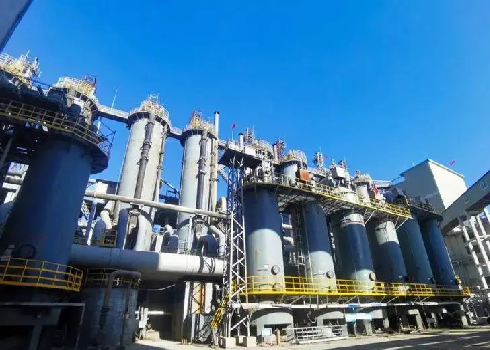The Anhydrous Sodium Sulfate Selection Guide: Optimizing Your Process
Anhydrous sodium sulfate is far from a commodity chemical. In the complex world of chemical manufacturing and processing, a “one-size-fits-all” procurement strategy for this versatile agent can conceal significant operational risks—including reduced production efficiency, inconsistent end-product quality, and costly unplanned downtime. Its performance characteristics vary considerably based on physical and chemical specifications, making the appropriate grade selection a critical technical choice that directly impacts your bottom line, not just a simple purchasing decision.This comprehensive guide provides a clear, actionable framework to help you navigate the selection process, ensuring you choose the most suitable and efficient sodium sulphate product for your specific operational needs.
A Decision-Based Framework for Optimal Selection
Different industrial applications place unique demands on this versatile chemical. The key to optimal selection lies in matching the product’s properties to your process’s most critical requirements. Use the following scenarios to identify your primary concern and discover the ideal solution.
Scenario 1: When Your Priority is Rapid Dissolution
Common Applications: Liquid detergents, water treatment chemicals, textile dyeing liquors, and other solution-based formulations.
The Core Challenge: Slow dissolution rates act as a bottleneck in your production cycle. Undissolved particles can lead to product inhomogeneity, creating batches that are out of specification and increasing the energy and time required for mixing.

The Optimal Solution: A powdered product with a finely tuned, specific particle size distribution is critical. Finer particles present a dramatically larger surface area to the liquid medium, enabling near-instantaneous dissolution. This translates to shorter mixing cycles, reduced energy consumption, and a more consistent final product. For processes where time is money, this specification is non-negotiable.
Scenario 2: When You Require Superior Flowability for Automated Systems
Common Applications: Large-scale detergent production, dry-mix mortars, animal feed manufacturing, and any facility utilizing pneumatic conveying or automated dosing systems.
The Core Challenge: Poor flowability leads to serious operational disruptions. Material can “bridge” in hoppers or clog screw feeders, causing inaccurate dosing, production line stoppages, and requiring manual intervention for clearing.
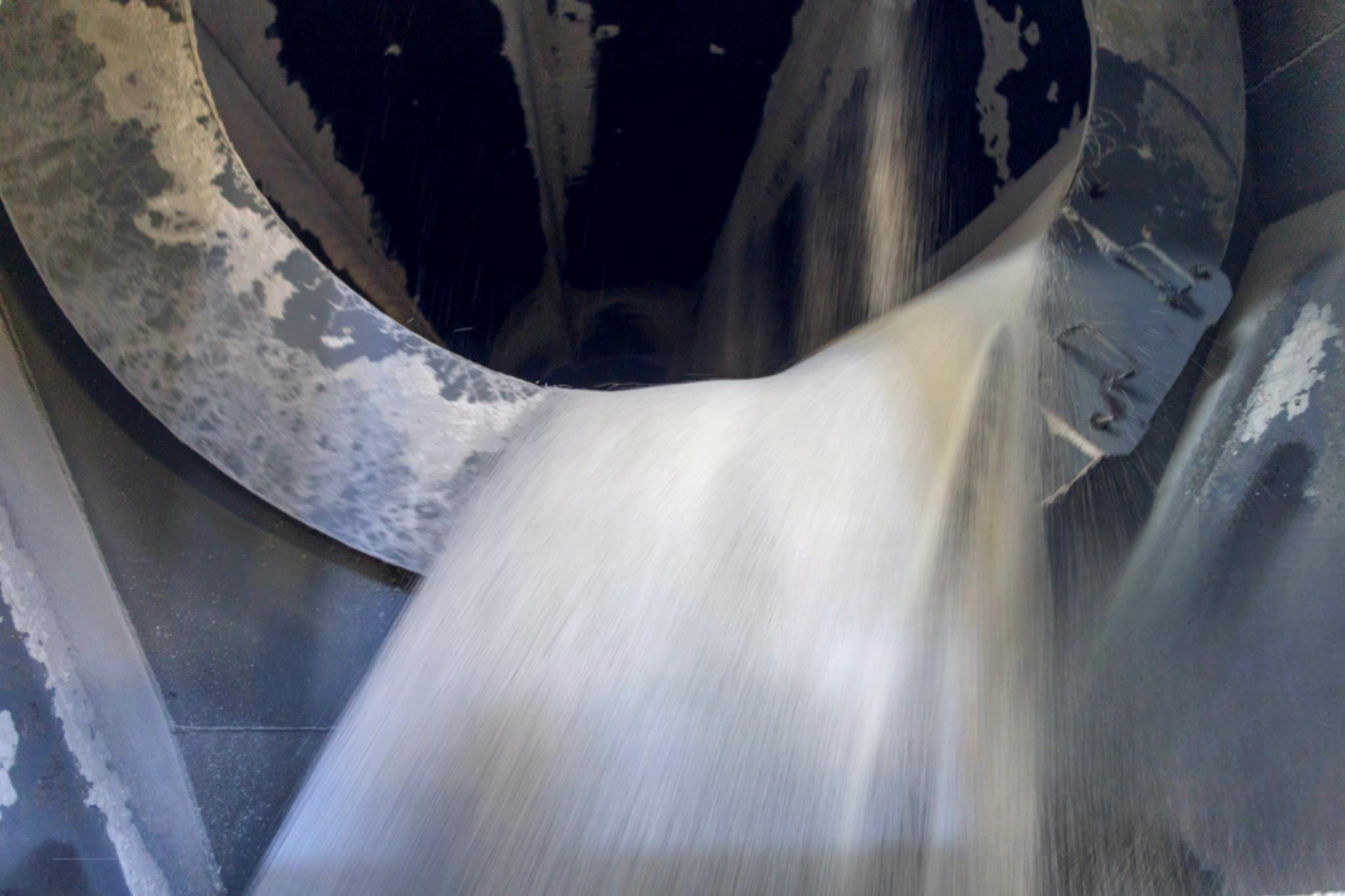
The Optimal Solution: A specially processed free-flowing grade of disodium sulfate is designed for these challenges. Through specific manufacturing techniques, these products achieve uniform, spherical granules that minimize inter-particle friction. They flow as seamlessly as water through complex automated systems, ensuring precise, consistent dosing and enabling truly continuous, uninterrupted production.
Scenario 3: When Your Process Demands the Highest Chemical Purity
Common Applications: High-end glass manufacturing (e.g., photovoltaic, optical, and electronic glass), pharmaceuticals, cosmetics, and precision chemical synthesis.
The Core Challenge: In these sensitive applications, even trace amounts of impurities—such as iron, calcium, or heavy metals—can have catastrophic effects. They can introduce discoloration, reduce transparency, compromise product stability, or act as catalysts for unwanted side reactions.

The Optimal Solution: Only a High Purity or Reagent Grade product will suffice. Sourced from reputable manufacturers who employ advanced refining techniques and rigorous quality control protocols, these grades guarantee impurity levels are reduced to parts-per-million (ppm) concentrations. This ensures your high-value product’s integrity and performance are never compromised by your raw materials.
Scenario 4: When Balancing Cost-Effectiveness with Handling Performance is Key
Common Applications: Standard powder detergents, bulk chemical manufacturing, and the pulp and paper industry.
The Core Challenge: In cost-sensitive markets, the goal is to maintain baseline performance while preventing the common handling issue of moisture absorption and caking. Caked product, sometimes referred to as “salt cake” in industrial contexts, is difficult to handle, leads to inaccurate measurement, and results in significant material waste.
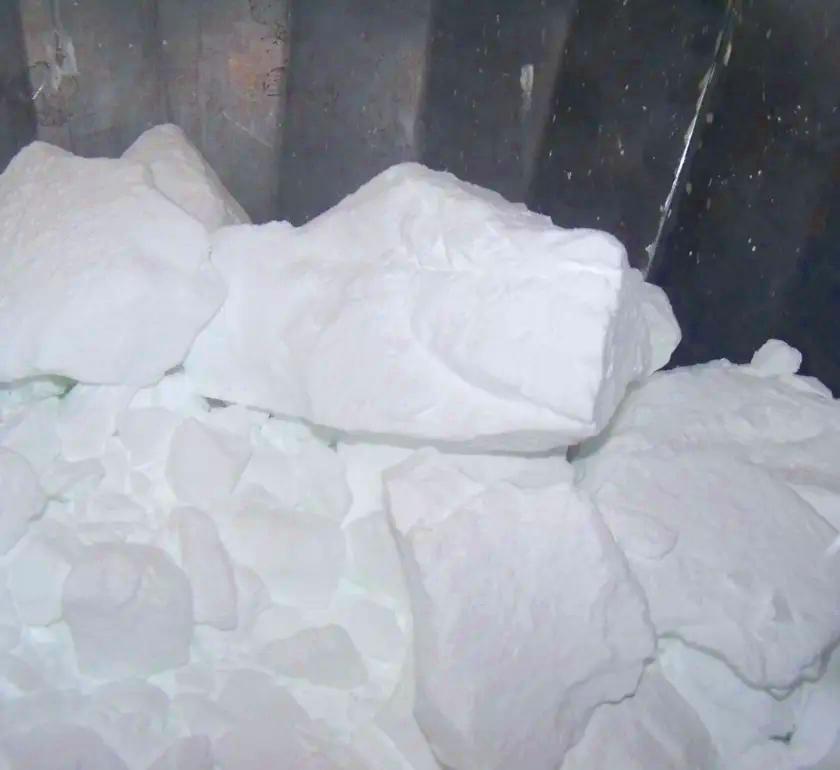
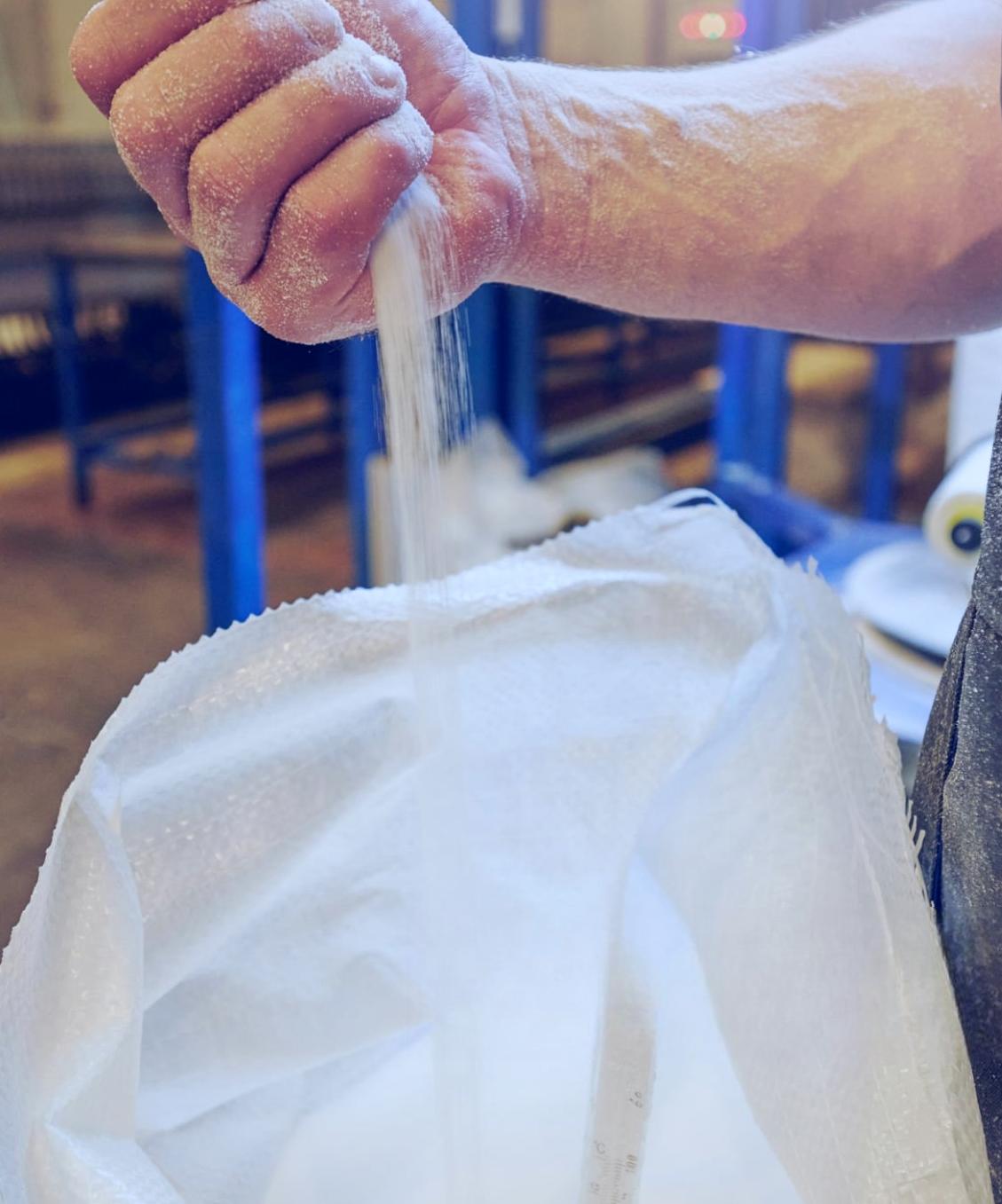
The Optimal Solution: A standard grade enhanced with an effective anti-caking coating offers the perfect balance. A minimal, safe coating is applied to the crystals, creating a protective barrier that repels ambient moisture. This keeps the product free-flowing throughout its shelf life and under various storage conditions, reducing waste and ensuring easy handling without a significant premium on cost. This approach delivers the optimal Total Cost of Ownership (TCO).
Case Study: Solving a Real-World Caking Problem
A Southeast Asian detergent manufacturer operating a fully automated production line faced persistent and costly downtime. Their standard Na₂SO₄ would absorb moisture and form hard cakes, disrupting the precision of their dosing equipment. This issue forced full-line cleaning shutdowns 2-3 times per week, crippling their efficiency.
After a detailed analysis of their plant’s humidity levels and dosing system mechanics, our solution was not to upsell them to a more expensive free-flowing grade. Instead, we identified that the core problem was specifically moisture absorption. We provided them with a standard particle size product featuring a highly effective, food-grade anti-caking coating.The result was transformative. The caking issue was virtually eliminated. The client’s production line achieved continuous, stable operation, reducing related downtime by over 90%. The return on investment was clearly demonstrated within just two months, proving that the most effective solution is often the most targeted one, not necessarily the most expensive.
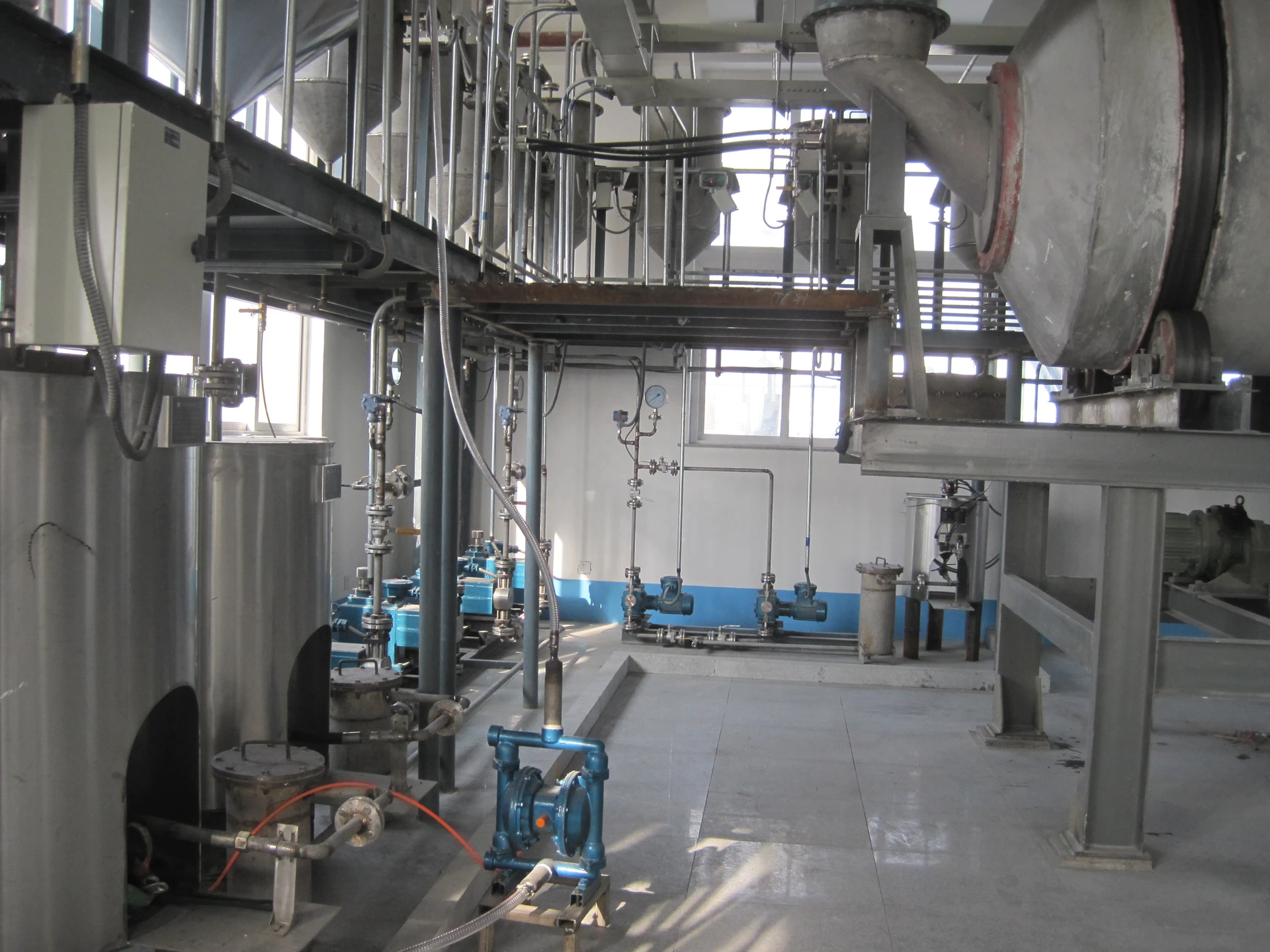
Conclusion: Make an Informed Technical Choice
Selecting the right anhydrous sodium sulfate is a strategic technical decision with direct consequences for your plant’s efficiency, your product’s quality, and your company’s profitability. Moving beyond a generic specification to a tailored solution unlocks significant operational and economic advantages.
Ready to Optimize Your Process?
Don’t let an improperly specified raw material limit your potential. Share your specific application, process parameters, and any challenges you are currently facing with our technical sales team.
Contact us today for a FREE, no-obligation, customized product evaluation and selection recommendation. Let our expertise guide you to the optimal solution for your unique needs.

